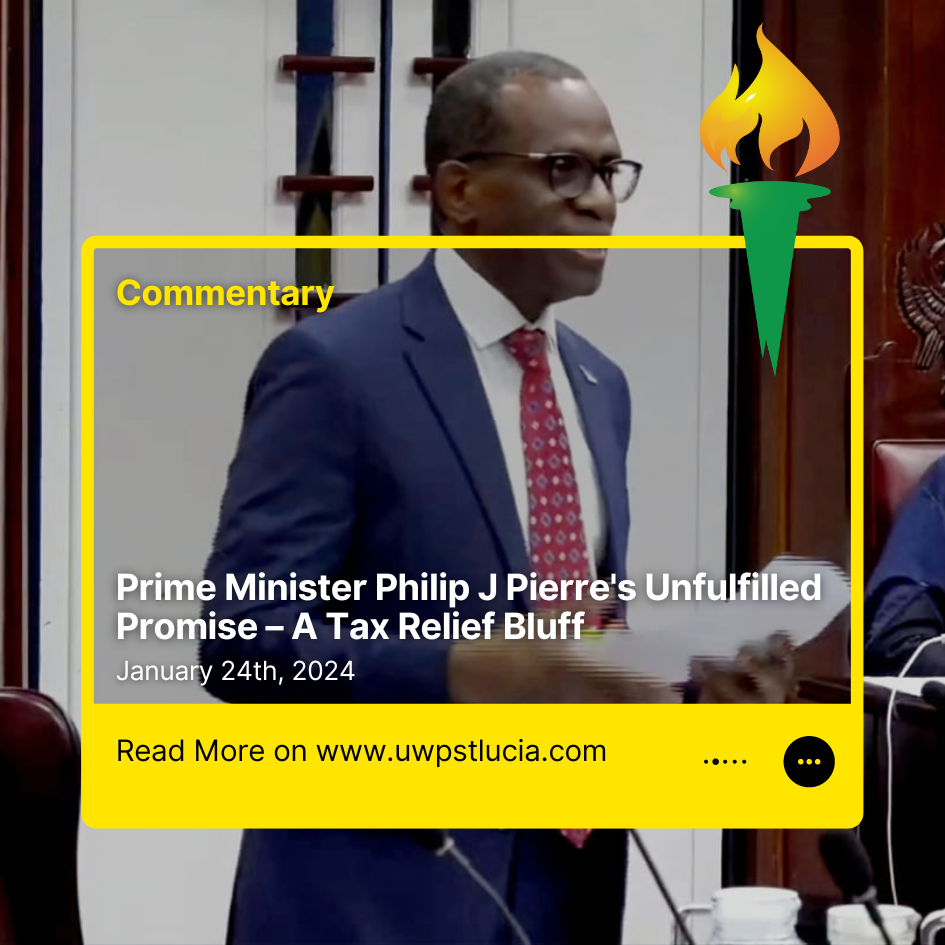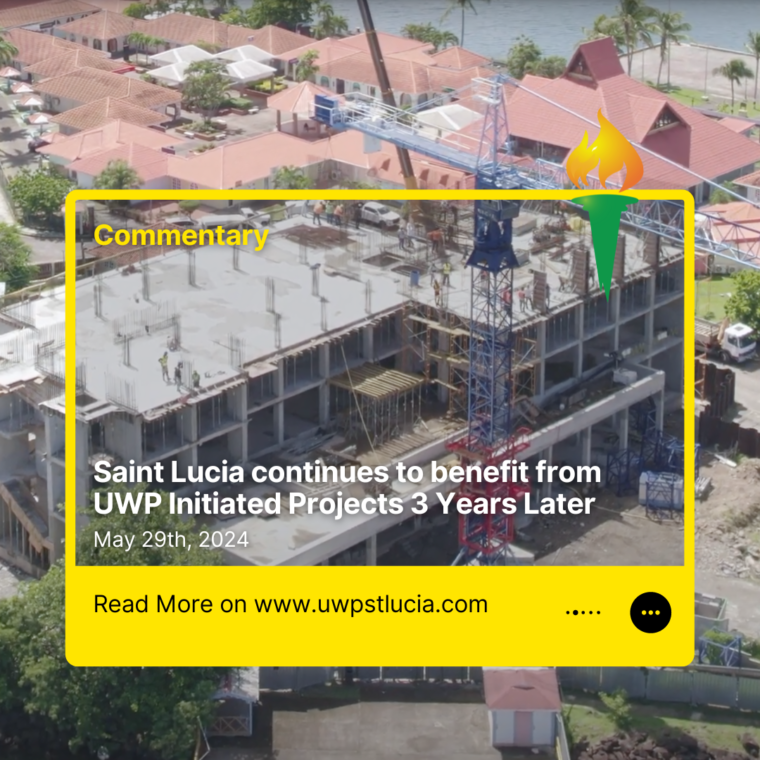When Prime Minister Philip J Pierre came into office, one of his most striking promises was the removal of income tax for individuals earning $4,000 or less per month. This pledge resonated with a broad swath of the populace, offering a beacon of financial relief and hope. However, as time has progressed, this promise has remained unfulfilled, casting a shadow over the Prime Minister’s commitment to the needs of the working class.
The decision not to follow through on this tax relief promise is more than just a political misstep; it’s a critical issue that affects the daily lives of many. For those earning modest incomes, the removal of income tax could have meant more disposable income for necessities, education, and healthcare. It was a chance to alleviate some of the financial pressures faced by the lower and middle-income brackets, especially in an economic climate strained by global events and local challenges.
The impact of this unfulfilled promise is multi-dimensional. Firstly, it undermines public trust in the government. When election promises, especially those as impactful as tax relief, are not honored, it erodes the faith of the citizens in their elected officials. This breach of trust can lead to apathy and disengagement, which are detrimental to the democratic process.
Secondly, the failure to remove income tax for those earning $4,000 or less reflects a disconnect between the government’s priorities and the immediate needs of its citizens. In a time where cost of living is a growing concern, such a policy could have provided much-needed relief and demonstrated a government that is sensitive to the struggles of its people.
Furthermore, this situation raises questions about fiscal management and policy-making within the current administration. The ability to make and implement sound financial policies is a cornerstone of effective governance. The lack of follow-through on such a significant promise might indicate deeper issues in policy planning and execution.
In conclusion, Prime Minister Philip J Pierre’s failure to remove income tax for individuals earning $4,000 or less is a disappointing oversight. It represents not just a broken promise, but a missed opportunity to make a tangible, positive difference in the lives of many.


Hon. Allen Chastanet efforts help Uphold Saint Lucia’s Constitution: A Triumph for Democracy
In a stirring defense of Saint Lucia’s constitutional integrity, Hon. Allen Chastanet, the Leader of the Opposition, recently thwarted what he deemed an unconstitutional maneuver by the Saint Lucia Labour Party (SLP) government. The government’s intention to bring in a Deputy Speaker from outside of Parliament raised grave concerns regarding the adherence to constitutional norms and democratic principles. Thanks to…
Read more
by Content Manager